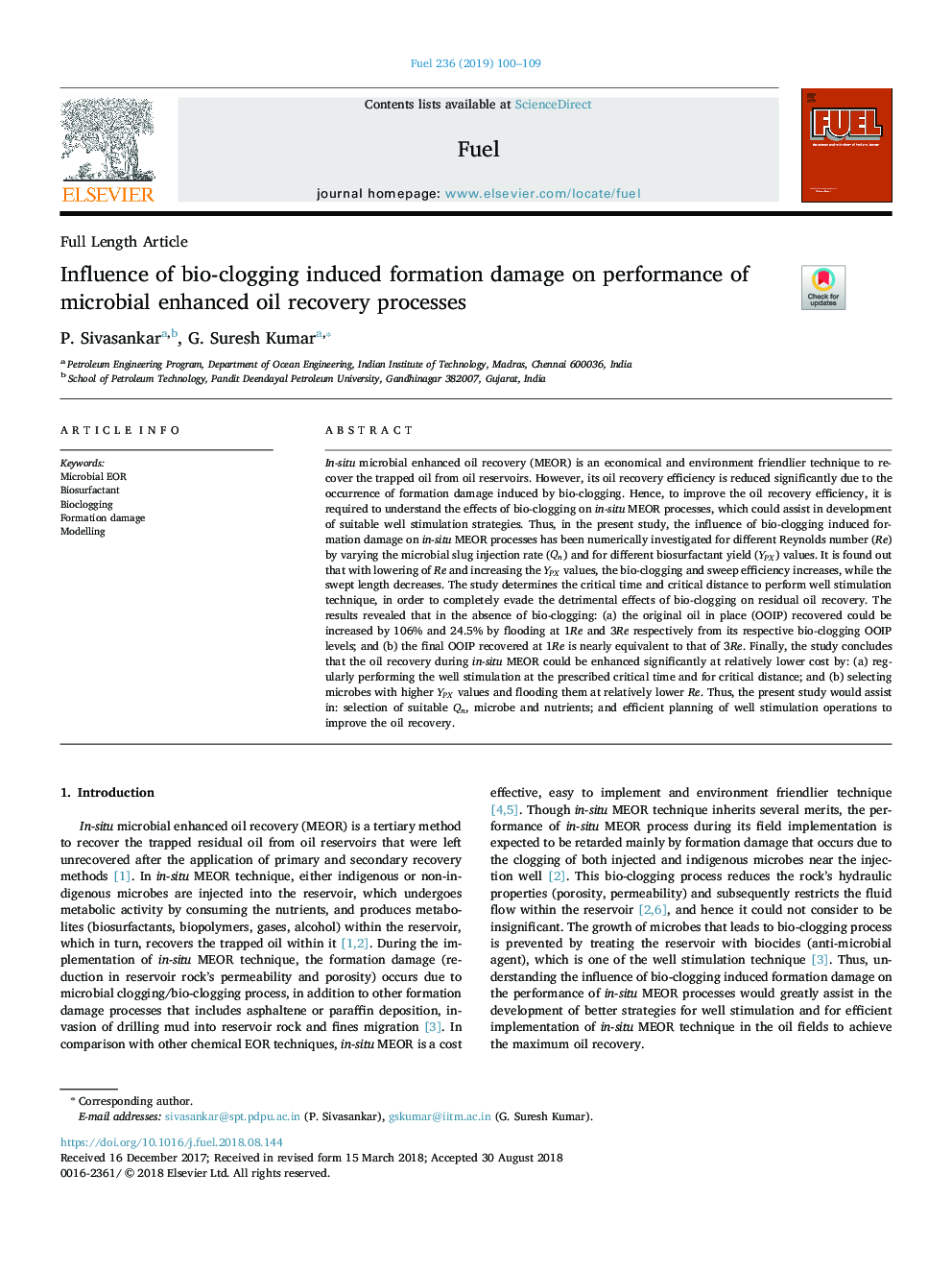| کد مقاله | کد نشریه | سال انتشار | مقاله انگلیسی | نسخه تمام متن |
|---|---|---|---|---|
| 8959869 | 1646362 | 2019 | 10 صفحه PDF | دانلود رایگان |
عنوان انگلیسی مقاله ISI
Influence of bio-clogging induced formation damage on performance of microbial enhanced oil recovery processes
ترجمه فارسی عنوان
تأثیر آسیب رسوب ناشی از زلزله زیستی بر عملکرد فرایندهای بازیافت روغن افزایش یافته با میکروبی
دانلود مقاله + سفارش ترجمه
دانلود مقاله ISI انگلیسی
رایگان برای ایرانیان
کلمات کلیدی
موضوعات مرتبط
مهندسی و علوم پایه
مهندسی شیمی
مهندسی شیمی (عمومی)
چکیده انگلیسی
In-situ microbial enhanced oil recovery (MEOR) is an economical and environment friendlier technique to recover the trapped oil from oil reservoirs. However, its oil recovery efficiency is reduced significantly due to the occurrence of formation damage induced by bio-clogging. Hence, to improve the oil recovery efficiency, it is required to understand the effects of bio-clogging on in-situ MEOR processes, which could assist in development of suitable well stimulation strategies. Thus, in the present study, the influence of bio-clogging induced formation damage on in-situ MEOR processes has been numerically investigated for different Reynolds number (Re) by varying the microbial slug injection rate (Qn) and for different biosurfactant yield (YPX) values. It is found out that with lowering of Re and increasing the YPX values, the bio-clogging and sweep efficiency increases, while the swept length decreases. The study determines the critical time and critical distance to perform well stimulation technique, in order to completely evade the detrimental effects of bio-clogging on residual oil recovery. The results revealed that in the absence of bio-clogging: (a) the original oil in place (OOIP) recovered could be increased by 106% and 24.5% by flooding at 1Re and 3Re respectively from its respective bio-clogging OOIP levels; and (b) the final OOIP recovered at 1Re is nearly equivalent to that of 3Re. Finally, the study concludes that the oil recovery during in-situ MEOR could be enhanced significantly at relatively lower cost by: (a) regularly performing the well stimulation at the prescribed critical time and for critical distance; and (b) selecting microbes with higher YPX values and flooding them at relatively lower Re. Thus, the present study would assist in: selection of suitable Qn, microbe and nutrients; and efficient planning of well stimulation operations to improve the oil recovery.
ناشر
Database: Elsevier - ScienceDirect (ساینس دایرکت)
Journal: Fuel - Volume 236, 15 January 2019, Pages 100-109
Journal: Fuel - Volume 236, 15 January 2019, Pages 100-109
نویسندگان
P. Sivasankar, G. Suresh Kumar,
